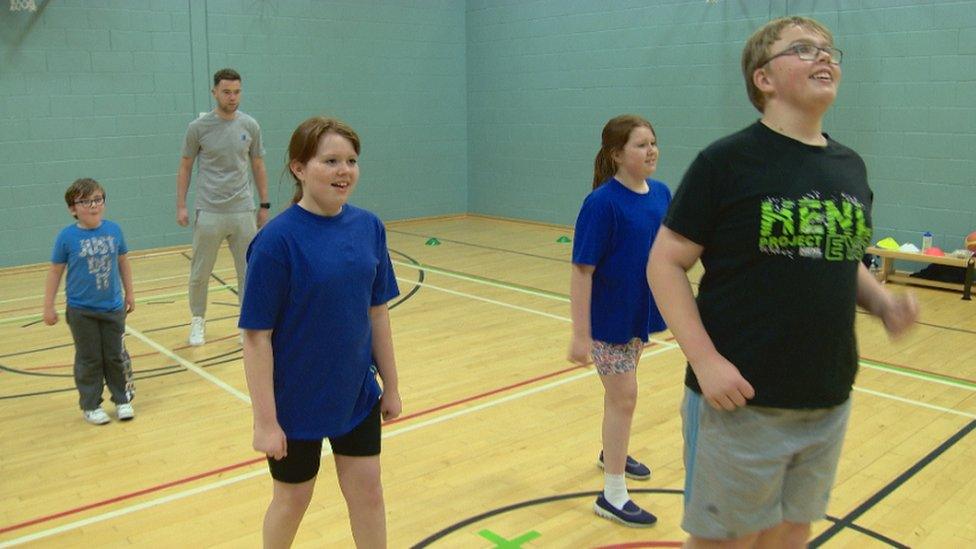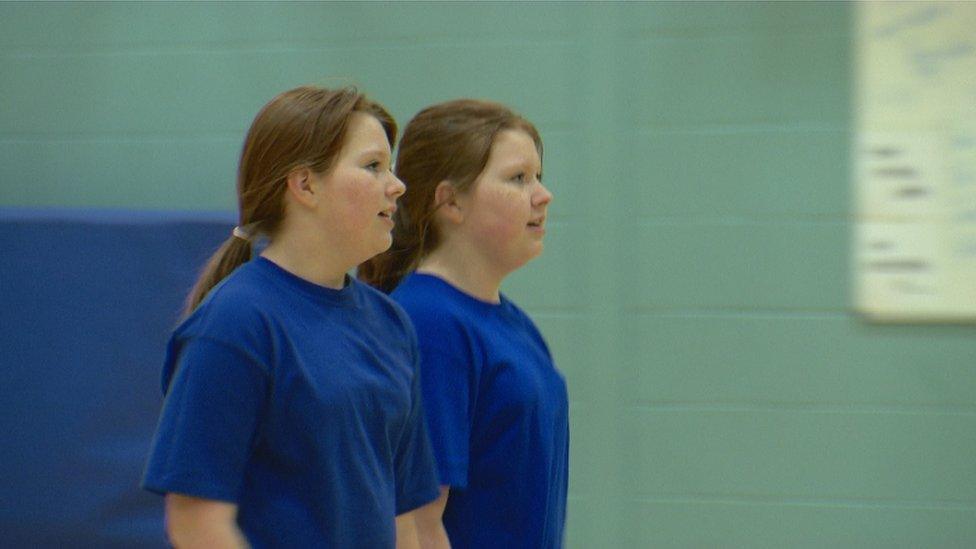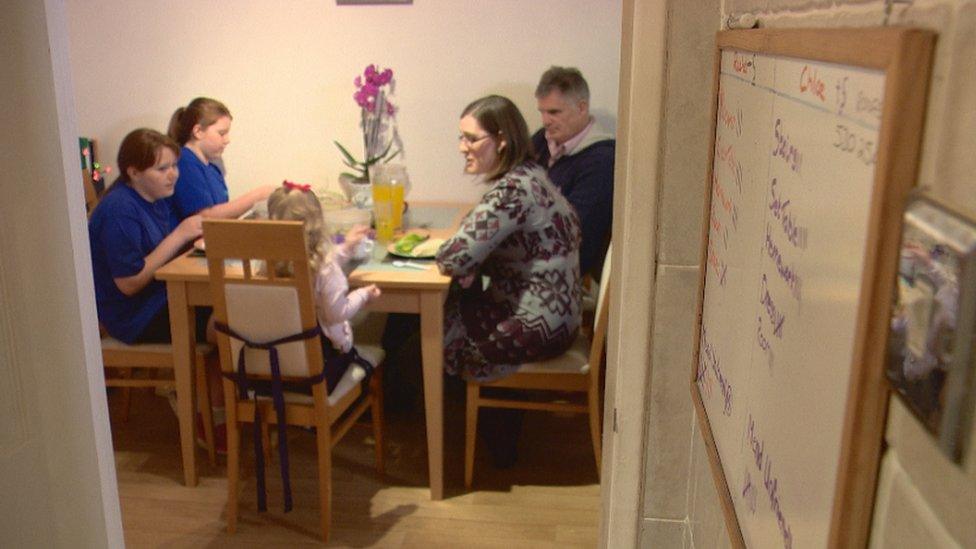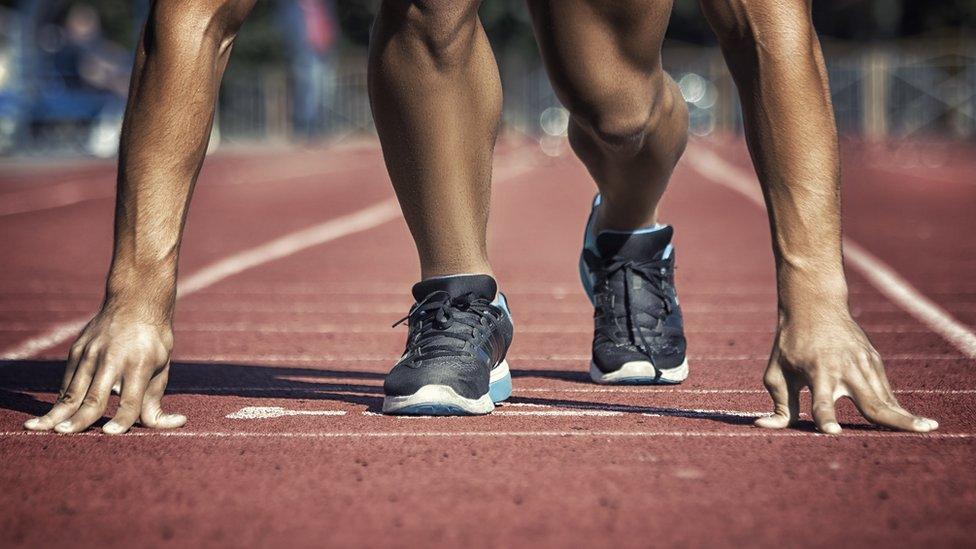Are medal-winning sports people inspiring children?
- Published

It's a freezing November evening and I'm in a sports centre in Kilmarnock.
I'm here with the Bias family - who are attending a programme called MEND.
It's designed to help get parents and children moving and give advice on diet and lifestyle.
It's a really fun programme to take part in - the room is full of children playing tig and other games.
It doesn't feel like sport, it's not competitive. It's just fun activity.
And it's important because Scotland needs to get more children and adults active.
Government figures show two thirds of adults are overweight. Just over a quarter of children are at risk of being overweight or obese.
I've been looking at why that is, and specifically what role sport plays.

Our elite sportsmen and women are winning more medals than ever before.
But government statistics on physical activity are largely static.
So what has happened to the inspiration that was meant to flow from our elite successes?
When I asked Prof Leigh Robinson from Stirling University about this she surprised me by saying there was no proven link between elite success and wider health.
She said: "Politicians and people who are trying to promote elite sport need to stop with that argument. Whether... the public are overly concerned about that argument, whether we like the fact that we win medals, that we are world champions, that we go away to events and are very successful, that may just be enough for us."
So it may well be that winning makes us all feel good, and that's enough, but she doesn't see any evidence it makes us healthier.
The more I spoke to people about this the clearer it became that if we are to become a more active society that needs to be part of our everyday lives.

Government initiatives that promote walking have seen big successes. Cycling is another area where activity can slot into our daily routine.
Back in Kilmarnock I spoke to Dawn Bias about everyday activity and something troubling became clear.
To get her kids up to a healthy level it seems she needs to make a real effort.
The simple kind of exercise many of us enjoyed as children - playing outside with friends - isn't something her girls do.
Instead, she ferries them to organised programmes.
"It's down to mum and dad - mum and dad's taxi as they call it usually - to get them to where they're to go. To follow someone else's structure. They don't get out and just play. It's a shame."
Much of this has to do with big changes in all our lives. Sedentary lifestyles, the attractions of modern technology and hustle and bustle of family life seemed to have squeezed out opportunities for activity.
We need to find ways to make time for it again, or face some sobering health consequences.
- Published2 January 2017

- Attribution
- Published13 August 2018